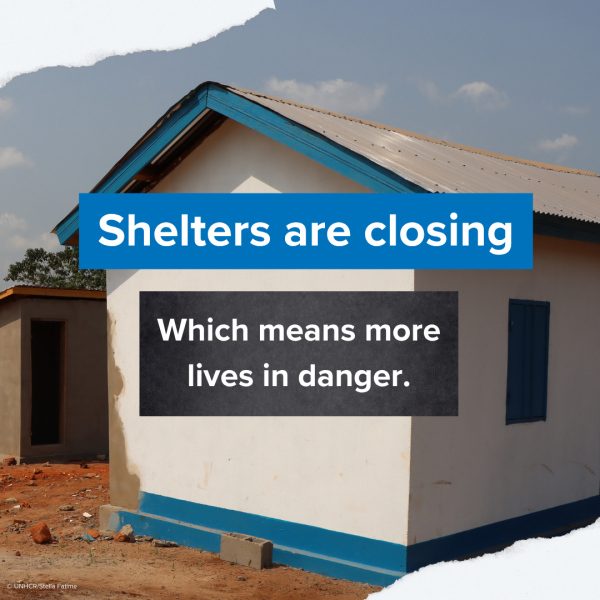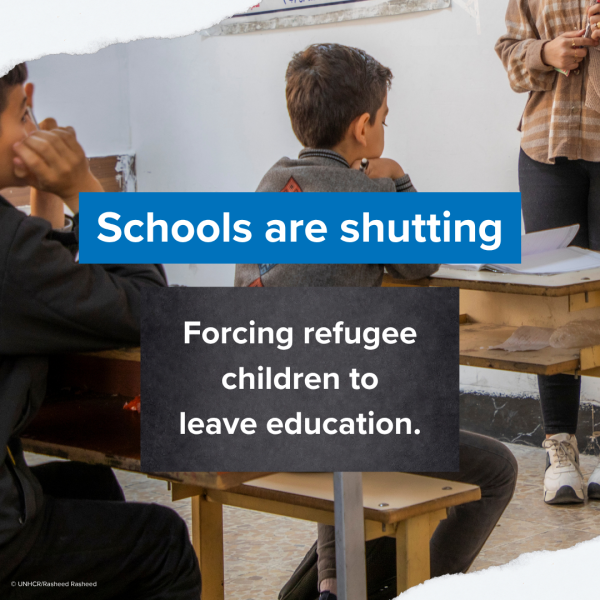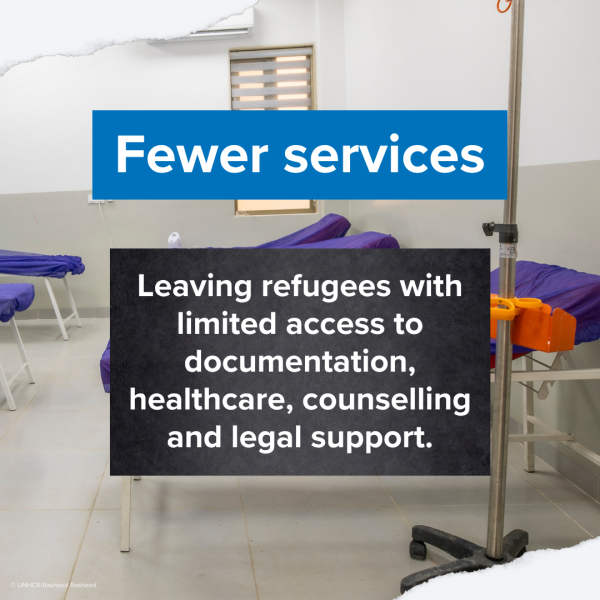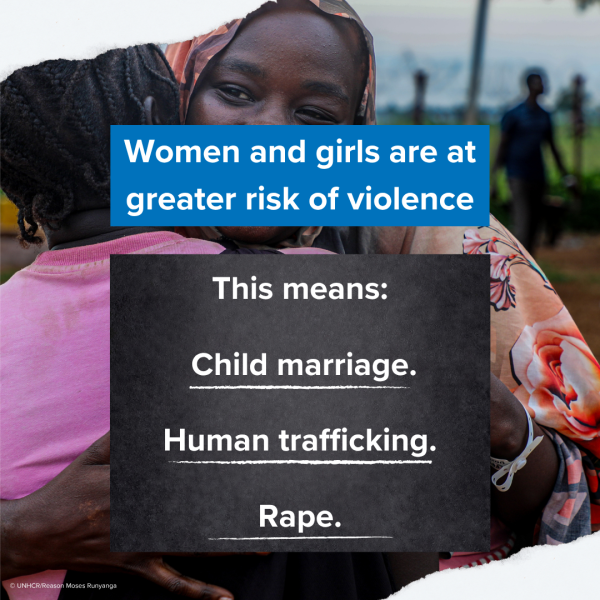On 20 June every year, we pay tribute to the courage, strength and resilience of the millions of people forced to flee their homes. But this year, World Refugee Day has a bitter taste. The courage of displaced people remains intact, but the means to protect them are crumbling.
Faced with unprecedented budget cuts, UNHCR, the UN Refugee Agency, must do less with less: fewer shelters, fewer health services, fewer children in school. Women and children are left isolated, exposed to violence, without care or a future.
UNHCR is forced to make impossible decisions: these choices affect human lives – women and children in extremely vulnerable situations.

Shelters are closing, lives are at risk
Sudan is now one of the worst humanitarian crises in the world. In 2024, according to the Global Trends report, more than 14.3 million people have been displaced by this crisis, almost one in three people in the country. On the Chad border, the camps’ capacities have been exceeded. Reception facilities are no longer able to cope.
The lack of funding has dramatic consequences: nearly 300,000 Sudanese refugees who fled violence in their country have been forced to live in makeshift shelters on the Chad border, exposed to extreme weather conditions, without privacy or protection, and at risk to their health and safety.
This is not an isolated case. In the Democratic Republic of Congo, Syria and Myanmar, UNHCR lacks the resources to maintain decent reception centres. And behind every underfunded humanitarian crisis, there are human lives being plunged into precariousness and danger.

Schools are closing, taking away hope with them
One in two refugee children does not attend secondary school. In already fragile host countries such as Chad, Pakistan and Uganda, the collapse of education funding can lead to classrooms or community education centres closing, or literacy programmes ending – directly impacting the future of thousands of children.
UNHCR's Global Trends report highlights that education systems in areas of mass displacement are chronically under-resourced and that education remains one of the least funded sectors. While refugee children have often experienced war, exile and trauma, their right to learn – and therefore to a future – is being denied.

Fewer vital services, more distress
In 2024, 129.9 million people were protected by UNHCR. But in many regions, this assistance is insufficient. In Haiti, Afghanistan and the Sahel, budget cuts are preventing access to basic services such as healthcare, psychological counselling, legal support, and registration and documentation assistance.
Without documents, it is impossible to move, work or get your basic rights recognized.
Without access to healthcare, disease spreads. Without legal support, exiled people remain trapped in an administrative limbo, with no way out and no future.

Women and girls: the primary victims of violence
Half of the world's displaced people are women and girls. And they are paying a heavy price for cuts to humanitarian aid.
When shelters close and protection services disappear, the risk of exploitation increases dramatically. Early marriage, sexual violence and human trafficking: refugee women and girls are much more exposed. The Global Report 2024 warns of rising gender-based violence, exacerbated by a lack of safe spaces and psychosocial support.
In precarious housing, without light or security, the danger becomes more present. Poverty makes teenage girls vulnerable to human trafficking. This is a situation that no one should have to live through.
Our commitment remains unwavering. But the future is uncertain.
UNHCR is not giving up. Our commitment to refugees remains total. Every day, our teams are on the ground to save lives, sometimes with very limited resources.
But with drastic budget cuts, the future is uncertain for thousands of people forced to flee their homes around the world. Without increased support from the international community and the public, we will not be able to meet the most urgent needs.
This 20 June, on World Refugee Day, we are reminded how essential solidarity is.
You can make a difference.
By donating, you can give a family a home. You can enable a child to go to school. You can protect a woman.